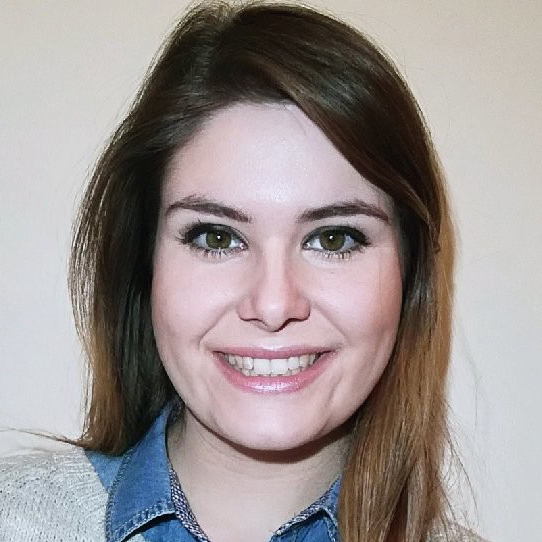Grants Program
Supporting Your Great Discoveries

Get support from Enzo for your next innovative research project
Scientists Enabling Scientists®

Product Validation Grant
Winning entries will receive product kits free of charge and/or monetary grant to assist with the additional expenses to support the proposed project.

Research Travel Grant
Enzo Research Travel Grant is available for scientists who are presenting their work featuring Enzo’s products at research conferences and meetings.
Featured Projects

ROBERT JAMES OSSIBOFF, DVM, PhD, DACVP
Clinical Associate Professor
Aquatic, Amphibian, and Reptile Pathology Program
Department of Comparative, Diagnostic, and Population Medicine, College of Veterinary Medicine, University of Florida
Gainesville, FL 32608
Characterization of a chuvirus identified in a wild American Alligator with meningoencephlomyelitis
To determine localization of viral nucleic acid in the brain tissue and spinal cord lesions, Dr. Ossiboff is using AMPIVIEW® Chuvirus (S) RNA probes to complete the characterization of the novel chuvirus that affect free ranging crocodilians associated with a neurologic disease.
I am a board certified veterinary anatomic pathologist, virologist, and molecular diagnostician with a primary professional focus on increasing the breadth and depth of knowledge of diseases of wildlife with special emphasis on reptiles and amphibians. Through a combined understanding of the fundamentals of disease pathogenesis, pathogen biology, disease pathology, and molecular/cellular biology, I approach animal disease investigations from multiple angles in an attempt to completely characterize disease conditions. My ultimate goal is to broadly impact the health of both captive and free-ranging wildlife through pathogen research and discovery, the creation and distribution of novel reagents, and the dissemination of knowledge.

ASHISH TYAGI
Research Assistant Professor
College of Pharmacy, Texas A&M University
Reynolds Medical Building, College Station, TX 77843
AACR 2024
At AACR, my research using a unique inhibitor of Androgen receptor, will provide 1) mechanistic insight into treatment landscape of CRPC that will help develop novel inhibitors targeting the “Achilles Heel” of AR activity: the N-terminal domain 2) discern the role of the novel ubiquitination site in AR protein degradation through lysosomal pathway.
I am a Research Assistant Professor at Texas A&M University. The long-term goal of my research is to understand the molecular basis underlying carcinogenesis, progression, and drug resistance, and to bridge the gap between vast cancer transcriptome/proteome information and unmet clinical need. A major focus of my research is to understand specific target molecules through system biology approach to identify rewired cell signaling network as well as vulnerabilities and exploit them for developing treatment for metastatic carcinomas including Castration Resistant Prostate Cancer (CRPC), Muscle Invasive Bladder Cancer (MIBC) and Colorectal cancers (CRC). My work on metastatic carcinomas has been recognized at national as well as international level with awards such as AACR-CSCO (American Association for Cancer Research and Chinese Society of Clinical Oncology 2018/2019) young investigator award, Travel Awards at TiCER (Texas A&M Center for Environmental Health Research 2021) and END2Cancer, Oklahoma.

Marina Ventura Rodrigues, PhD
Postdoctoral Researcher
Synapse Biology group
Ana Luisa Carvalho’s Lab, Center for Neuroscience and Cell Biology
University of Coimbra, Portugal
FENS 2024
My research on neuronal excitability and M-current regulation, specifically in identifying type 1 TARPs as new Kv7.2 subunit interactions, provides groundbreaking evidence of a synaptic protein directly involved in neuronal intrinsic excitability regulation and holds important implications for epilepsy.
I am a postdoctoral researcher at the Synapse Biology Group at the Center for Neuroscience and Cell Biology in Coimbra, Portugal. My goals as a neuroscientist are to uncover and understand perturbations in neurodevelopment that lead to pathological conditions such as epilepsy and intellectual disabilities. Ultimately, I strive to use this knowledge to understand the restoration of normal function within the brain. My work has been recognized in more than 10 national and international scientific meetings, and I have received several travel grants, awards, and distinctions during my time as a postdoctoral researcher. I am currently focused on a new neurological mechanism, identified as M-current, that is involved in the regulation and control of neuronal excitability. My work on this novel mechanism represents advancements in neuroscience and potential important implications for epilepsy.

John Monyror
PhD student
University of Alberta
Canada
Keystone Symposium 2025
Poster presentation: Gangliosides Modulate the Secretion of Extracellular Vesicles and Their Misfolded Protein Cargo
I am a PhD student at the University of Alberta, working under the supervision of Dr. Simonetta Sipione. Our lab has previously demonstrated that a glycosphingolipid called ganglioside GM1 is a disease-modifying treatment in Huntington’s disease (HD) mice that efficiently lowers brain levels of the disease-causing protein, mutant huntingtin. My work focuses on understanding the mechanism(s) by which ganglioside GM1 exerts its mutant huntingtin-lowering effect. In doing so, I have identified a novel role for gangliosides in proteostasis that may, at least in part, explain the therapeutic effects of GM1 in HD and may have broader relevance to other protein misfolding neurodegenerative diseases.
 Lab Essentials
Lab Essentials AMPIVIEW® RNA probes
AMPIVIEW® RNA probes Enabling Your Projects
Enabling Your Projects  GMP Services
GMP Services Bulk Solutions
Bulk Solutions Have You Published Using an Enzo Product?
Have You Published Using an Enzo Product?